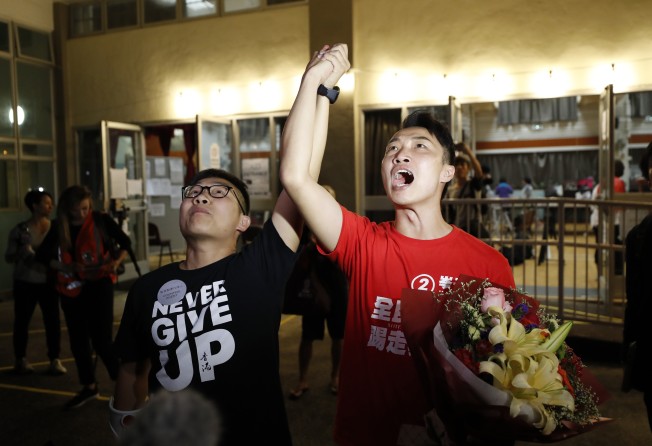Why democracy matters in Hong Kong: eight lessons from the district council elections
- Sheer turnout and results show that Hongkongers won’t accept handouts in exchange for an erosion of rights, and reject patronising governance enabled by the pro-establishment camp’s rubber stamp
- Protesters should also see that voting is more effective than vandalism

I am heartened by the fact that 2.94 million (more than 71 per cent) voters took part in the latest district council elections, the highest turnout in Hong Kong’s election history.
The pro-democracy camp won around 86 per cent of councillor seats, a tsunami of defeat for the pro-establishment camp, which has traditionally supported the government’s top-down non-responsive style of governance.
This affirms that most Hong Kong voters are unwilling to accept the government’s handouts (for instance, additional subsidies and public housing) in exchange for an erosion of the human rights that should prevail in a democratic and free society.
The district council election outcome conveys significant messages.
First, a fair and open election is an effective public referendum for all Hong Kong voters to express their majority preference for the city’s future mix of ruling politicians and policymakers.
Second, Hong Kong voters have faith in an election marked by fairness, openness and transparency.
Third, Hong Kong voters, especially the younger ones, can rock the once seemingly unshakeable pro-establishment boat.
Fourth, Hong Kong voters are expected to actively participate in the 2020 Legislative Council election, potentially further diminishing the pan-establishment camp’s political dominance.
Fifth, voting results matter most, not transport disruption, property vandalism and the vigilante violence that has invited forceful suppression of a youth-led movement intended to preserve the constitutional rights enshrined in the Basic Law.
Sixth, while the government can ignore the protesters’ anthem “Glory to Hong Kong”, it cannot offhandedly dismiss Hong Kong voters’ aspiration for democracy and freedom.
Seventh, Hong Kong voters must let their voting rights reaffirm Hong Kong’s glory, which was built with the Lion Rock spirit but is now fading fast.
Finally, vandalism and violence cannot and will not work, chiefly because of their deadly consequences for all Hongkongers.
Does Mother Lam know best? My answer is no, notwithstanding her repeated statements of opaque consultation and self-reflection.
Supporting my answer is the final tally, a clear rejection by most Hong Kong voters of the tradition of patronising governance, enabled by the pro-establishment camp’s rubber stamp.
Hence, I strongly urge continuance of the highly welcome ceasefire observed in the days immediately before the last district council elections, thus allowing Hong Kong to heal its gaping wounds.
A must-have element of the healing pathway is a peaceful and orderly Legislative Council election in 2020, Hong Kong’s next opportunity for another effective public referendum.
C.K. Woo, professor, Department of Asian and Policy Studies, Education University of Hong Kong